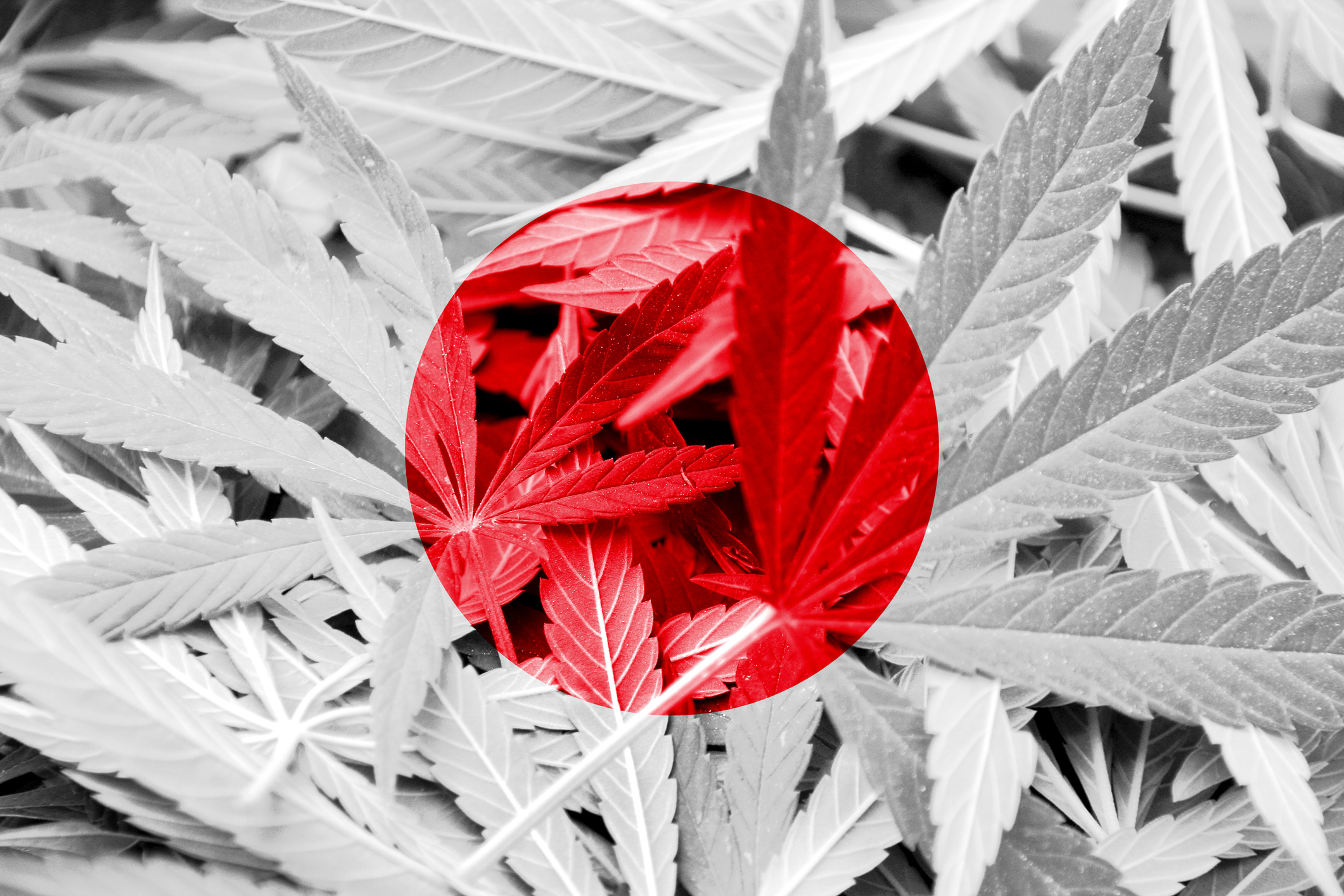
In Japan, you can be jailed for up to seven years for possessing cannabis. But getting high on it isn’t a crime at all—and neither is possessing, trading, or consuming a number of synthetic cannabinoids designed to mimic the same high just without THC, the naturally occurring psychoactive element in cannabis.
A green rush is sweeping across Asia, a region traditionally known for its harsh drug laws, with some countries embracing partial or full legalization in recent years and others doubling down on strict prohibition.
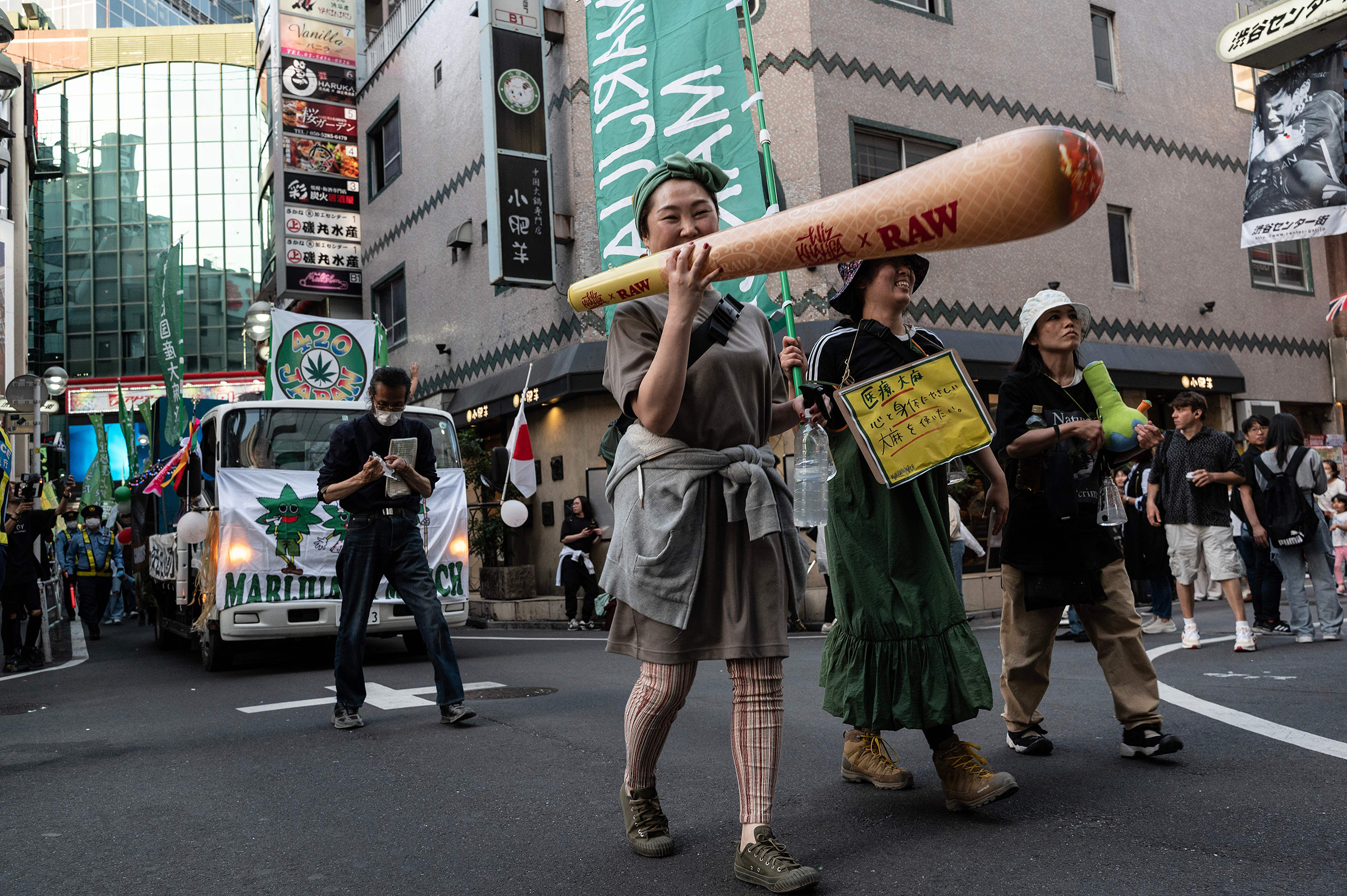
Japanese lawmakers, according to political observers, are gearing up to debate the country’s own cannabis laws during the next parliamentary session, which is expected to convene as early as October. But while there is some hope among cannabis advocates for a greater acceptance of the drug’s use for medical purposes, it’s widely anticipated that lawmakers will aim to crack down on recreational use—including by closing existing loopholes in the law.
Here’s everything to know about the current state of weed regulation in Japan—and where it could go next.
Doing almost anything with cannabis is a crime, but consuming it isn’t
Japan has a long tradition of cannabis farming, with hemp used in garment-making, as food seasoning, and for religious practices. But the tradition came under scrutiny after World War II, when U.S. occupying forces called for a ban on cannabis.
The result was the 1948 Cannabis Control Act, which outlawed most parts of the hemp plant but not its mature stems and seeds, which were, at the time, believed to contain no psychoactive chemicals. The Act today criminalizes the import, export, production, sale, possession, and research of marijuana—but says nothing of consumption. The reason for this omission, as cited by authorities and local media, is to avoid penalizing farmers, who may inadvertently get high from inhaling their cannabis crops.
"The Cannabis Control Act was established in 1948 as a reconciliation between the protection of cannabis farmers and the demand from the [U.S. forces] to pursue total prohibition,” Michiko Kameishi, a lawyer in Osaka known for defending those in cannabis cases, tells TIME.
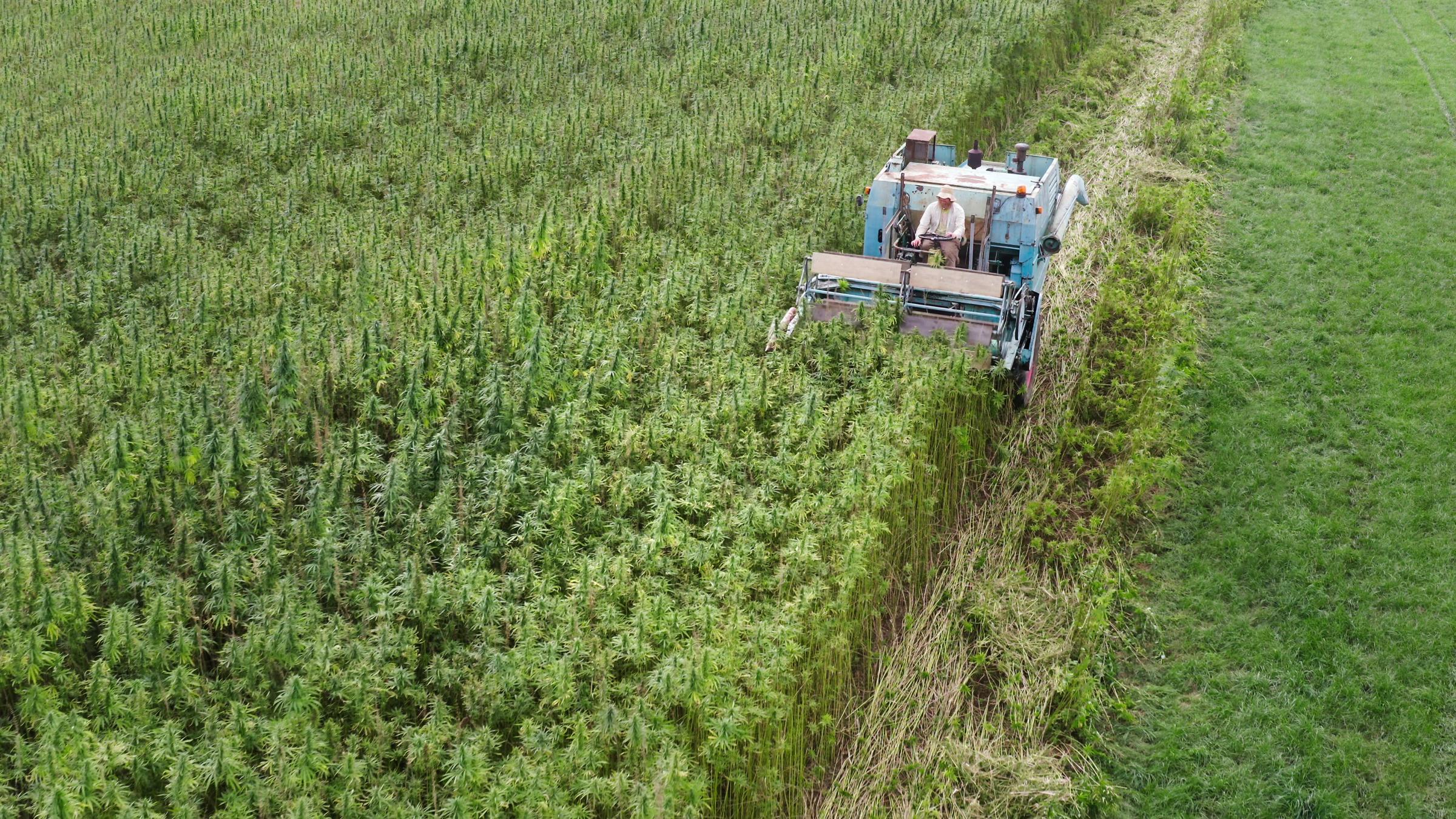
But today, with few hemp farmers left in the country, the apparent legality of cannabis use has led to ambiguity in enforcement. For example, Naoko Miki, co-founder of cannabis legalization advocacy group Green Zone Japan, tells TIME, police wouldn’t be able to make an arrest if somebody consumes all of their cannabis and none of it is found in their possession.
“Also, if you are at a party and there's a joint going around and if you smoke it, if you say that it doesn't belong to you—‘it's somebody else's, I just puffed on it’—then police cannot arrest you,” she adds.
Even though getting high per se is not a crime, there are still some legal provisions that stop people from engaging in dangerous behavior while using cannabis, such as driving, says Yasuhiro Maruyama, a criminology professor at Rissho University in Tokyo.
“Police officers can arrest people who use not only cannabis but also other substances when they drive [under] the Road Traffic Act,” he says, which prohibits people from driving when overworked, ill, under the influence of drugs, or under any circumstances that affects their ability to drive safely.
Authorities have become increasingly aware of gaps in the cannabis laws. In 2021, a panel formed under the Ministry of Health recommended that cannabis use be banned. The announcement came after a record 5,034 people, many of them teenagers and young adults, were caught in cannabis-related cases in 2020. Last year, authorities dealt with a new record 5,783 cannabis offenses.
But until legislative changes are enacted to target cannabis use, authorities can only crack down on possession, which they have done, arresting people for even trace amounts of cannabis on them. Earlier this month, a 21-year-old university student was arrested for possessing just 0.019 grams of cannabis and as well as small amounts of another illicit substance.
THC is banned, but synthetic cannabinoids aren’t
Despite its unequivocally anti-weed stance, Japan has struggled to rein in green businesses on the ground, most notably CBD products—made from cannabis stalks and seeds that do not contain THC—which are allowed to be imported in Japan. The CBD industry has thrived in Japan, rising over the past decade to a value of over 18 billion yen ($124 million) in 2021 and estimated to surge to 83 billion yen ($574 million) by 2025.
But another, more recent, effect of Japan’s convoluted cannabis laws is the proliferation of unregulated synthetic cannabinoids in the local market that do not actually contain the banned THC but have been designed to achieve similar psychoactive effects. Despite some health concerns about the safety of these novel cannabinoids, known in Japan as “loophole herbs,” their popularity has soared over the past two years, even as authorities race to stamp out their use in a futile game of regulatory catch-up: trying to ban the derivatives one at a time.
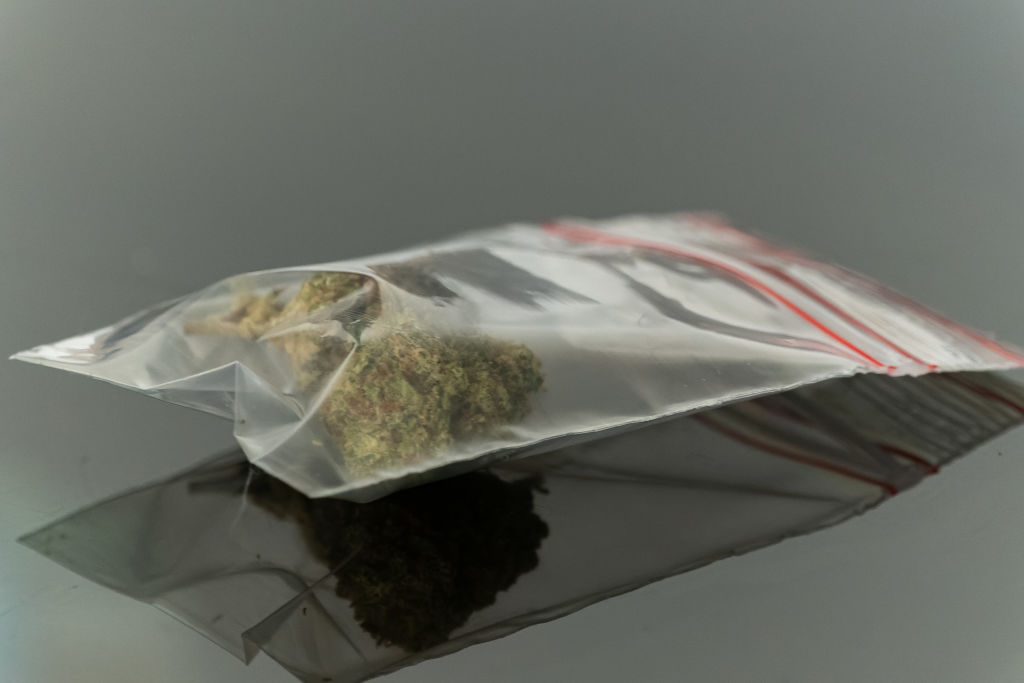
Earlier this month, on August 4, a ban on THCH kicked in after it was first announced on July 25. CBD shops around Japan scrambled to get rid of edibles and vapes containing the synthetic drug, selling them at huge discounts, but they’re not losing sleep over the crackdown. It’s not the first time they’ve had to work around such bans, with the same thing happening to THC-O and HHC-O in March and HHC last year. Sellers tell TIME they can simply restock with other derivatives that offer the same high but are yet to be banned. “I don’t wanna mention their names just because I don’t wanna make it too obvious,” says Toshiki Inoue, the founder of popular cannabis brand Chillaxy, a store which sells CBD and—until recently—THCH.
Inoue adds that the market resorts to synthetic cannabinoids largely because there is no other choice. “People are only using these synthetics because they are legal and have the same effects, and they can bypass the law and use it safely. But that’s not the best option,” he says. “The best option is basically for the government to legalize cannabis, monitor it from their point of view, and tax it.”
“Control it like alcohol, basically.”
Is legalization on the table?
While all signals point to a coming crackdown on recreational cannabis, Japan appears to be cautiously warming up to the potential benefits of cannabis for medical purposes. Last year saw a trial for Epidiolex, a pharmaceutical drug used to treat epilepsy that contains a cannabis-derived ingredient, after recommendations from a Japanese health ministry panel. Earlier this year, it looked like the legalization of medical cannabis could make serious headway, having been reportedly considered for bill submission at the annual parliamentary session lasting from January to June. But the 150-day session concluded without any developments on that front.
The country’s stubborn stance against recreational cannabis does not seem likely to change in the foreseeable future, say cannabis advocates. If anything, lawmakers appear poised to try to close the consumption and synthetics loopholes and increase punishments for cannabis-related offenses.
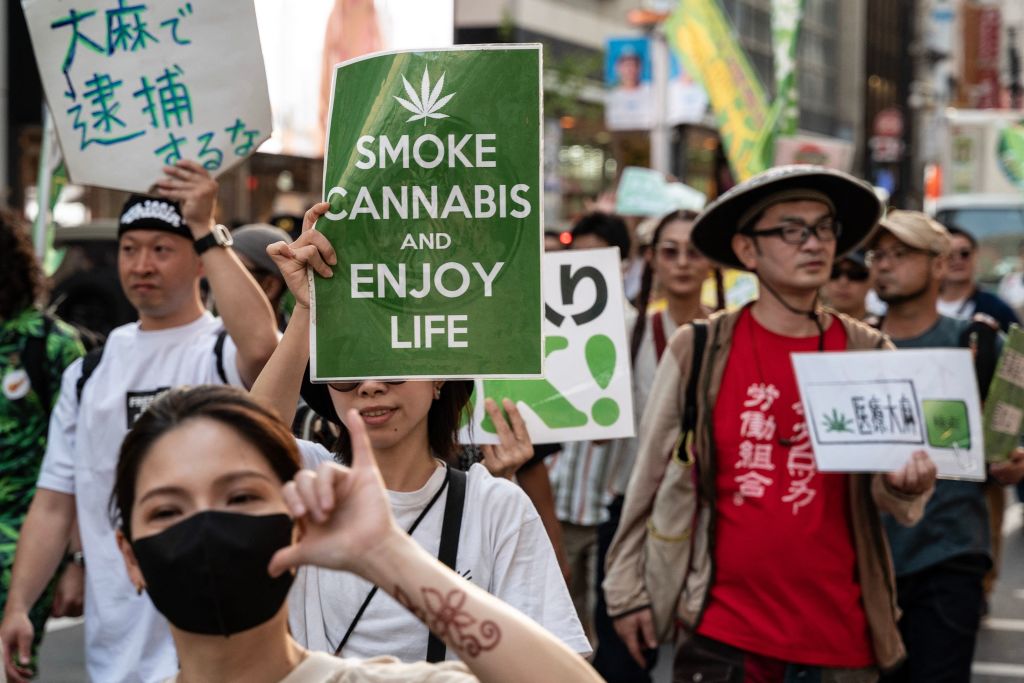
“We're still in reefer madness era. The government is still sending out [a] message to the public that cannabis is very dangerous, it's addictive, it ruins your life, stay away from it,” says Miki of Green Zone Japan. “It's really going backwards in terms of a civil way of thinking about this whole thing.”
More Must-Reads from TIME
- Cybersecurity Experts Are Sounding the Alarm on DOGE
- Meet the 2025 Women of the Year
- The Harsh Truth About Disability Inclusion
- Why Do More Young Adults Have Cancer?
- Colman Domingo Leads With Radical Love
- How to Get Better at Doing Things Alone
- Michelle Zauner Stares Down the Darkness
Contact us at letters@time.com